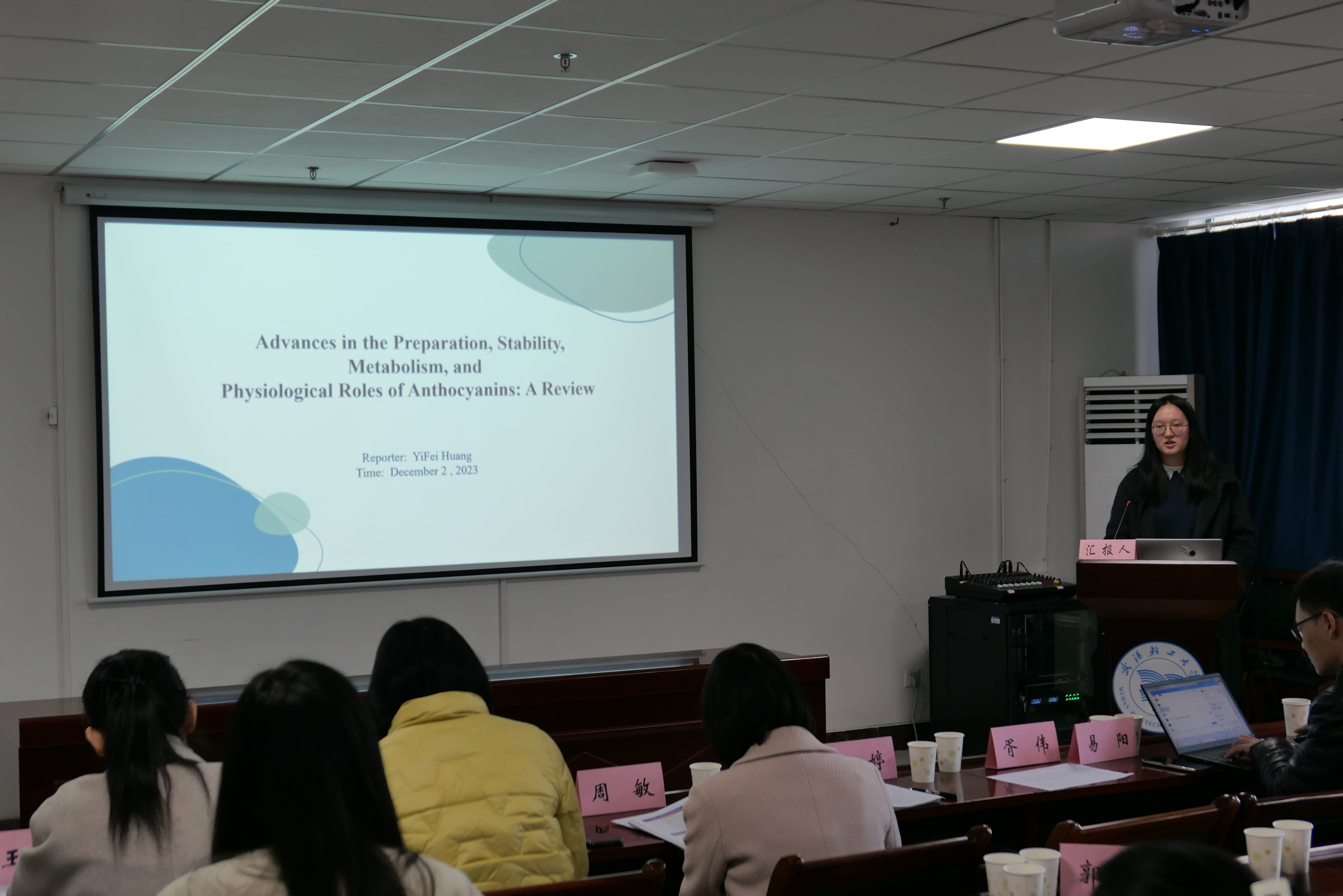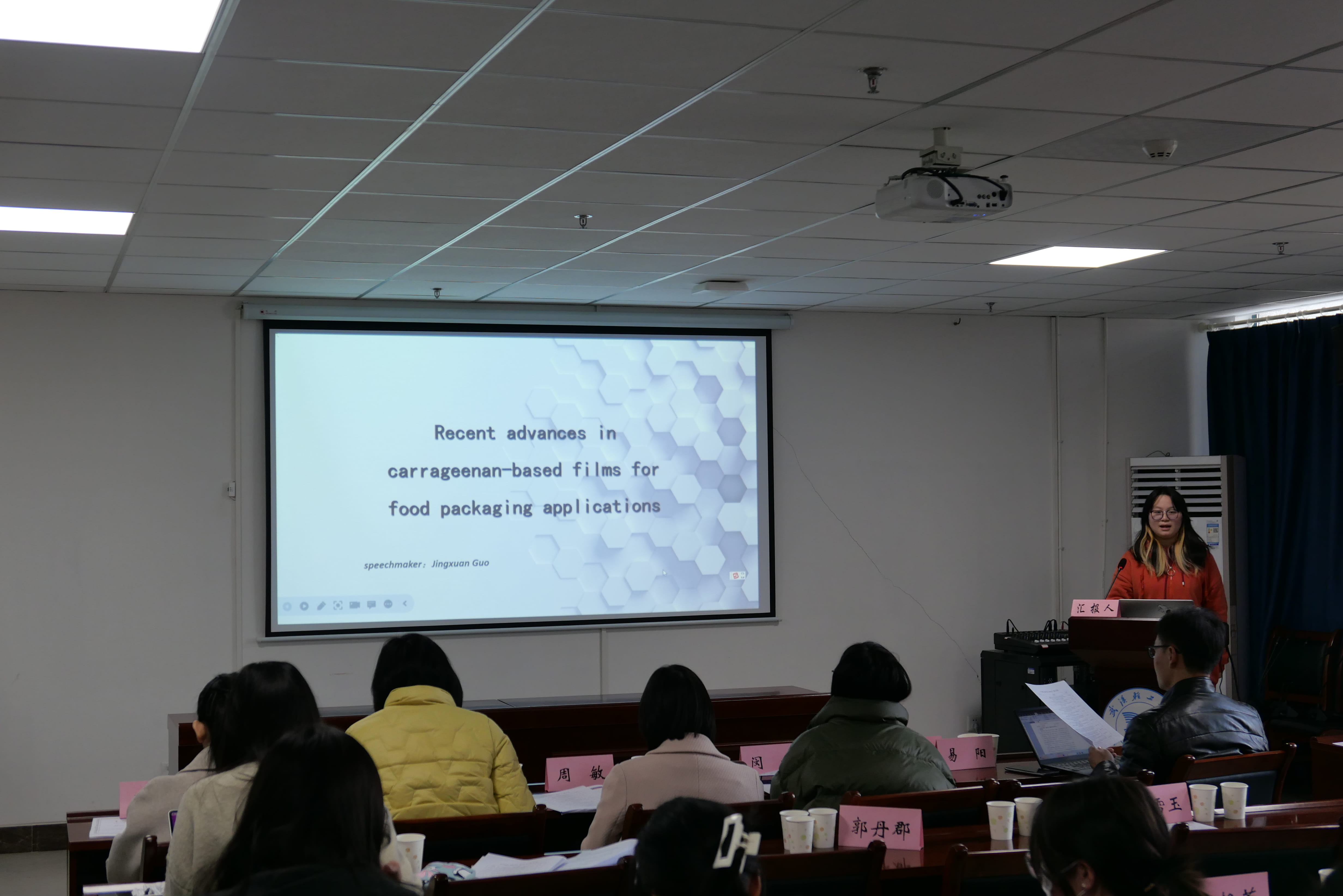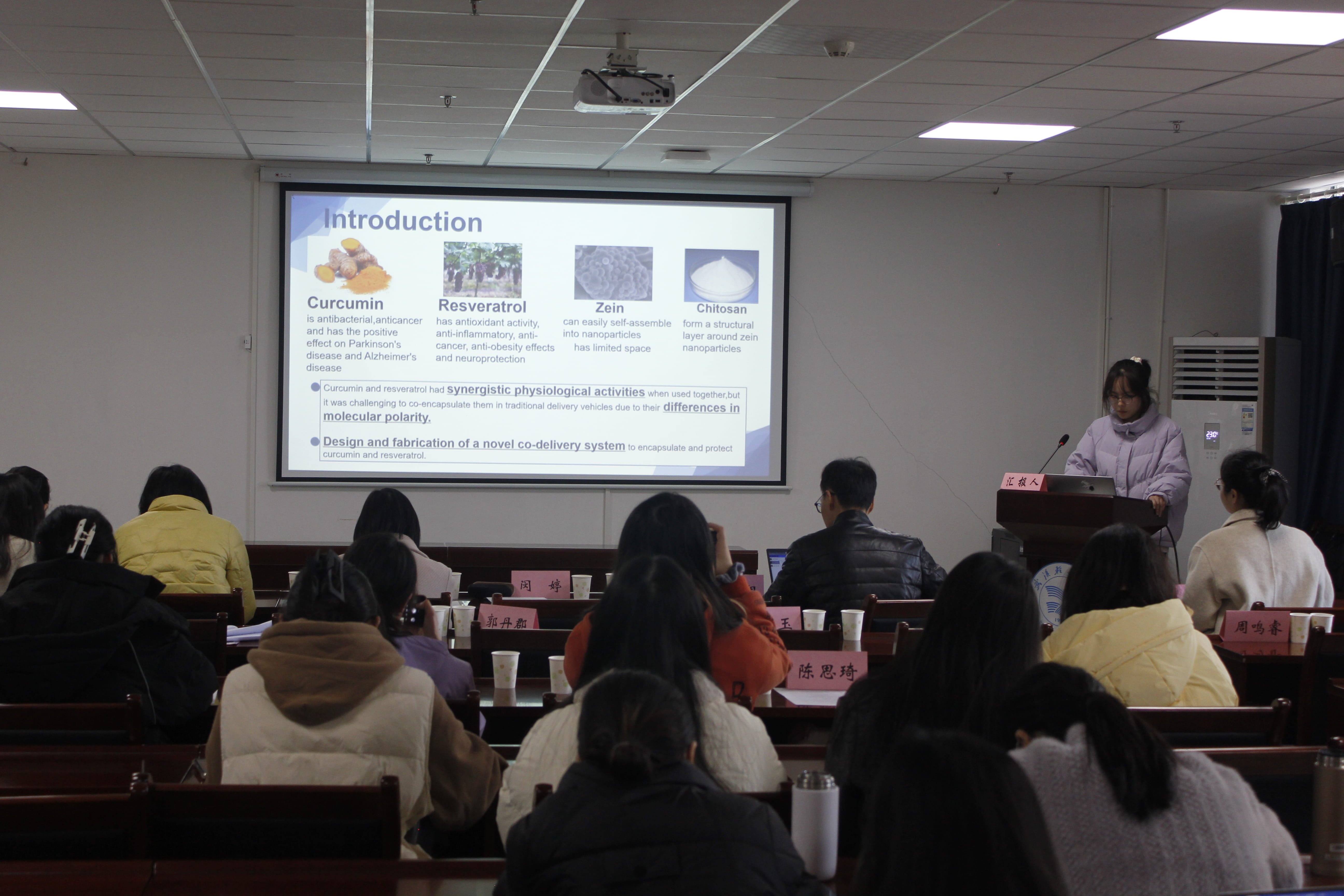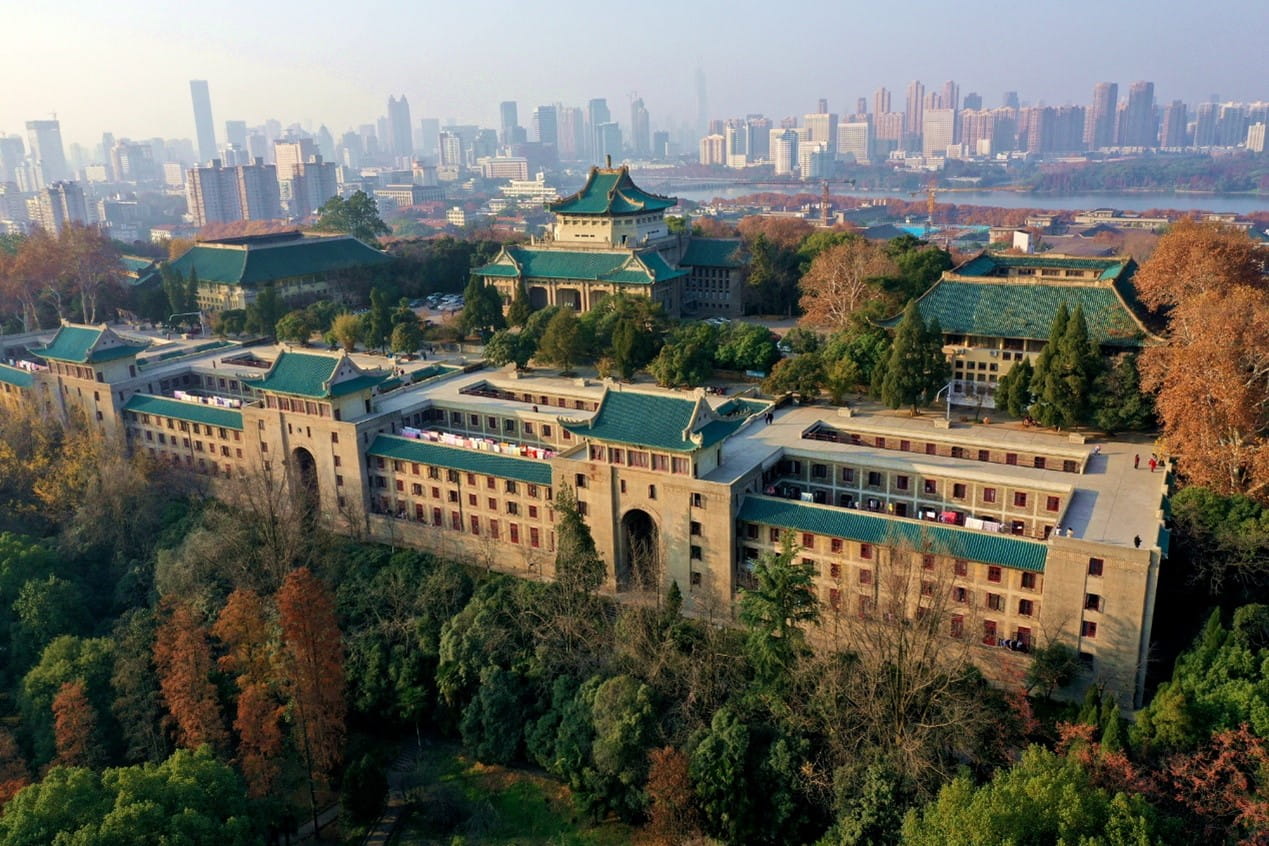Workshop Title:
Dietary Nutrient Bioactive Compounds and Chronic Diseases
Date:
December 2, 2023
Organizer:
Wuhan University Food Nutrition Research Center
Keywords:
- Nutritional supplements
- Food science and nutrition
- Functional foods
Workshop Chair:
Personal Bio:
Shuai Chen, the secretary of the Labor and Environmental Nutrition Toxicology Joint Party Branch of the School of Public Health at Wuhan University, and the deputy director of the Department of Nutrition and Food Hygiene, the faculty organization committee of the school. The joint doctoral degree from China Agricultural University and the University of Massachusetts, and the selected young top talent in Hubei Province, a selected "Three Zone Talent" in Hubei Province, and an "Outstanding Talent in Wuhan" in the city of Wuhan. A member of the Hubei Province Nutrition and Health Expert Committee, a director of the Hubei Provincial Preventive Medicine Association, a director of the Wuhan Preventive Medicine Association, a member of the American Chemical Society, a member of the Chinese Nutrition Society, a member of the Chinese Society of Food Science and Technology, a member of the Chinese Cereals and Oils Association, and a member of the Chinese Society of Agricultural Engineering.
Workshop Description:
Background:
The workshop aims to explore the latest research and advancements in understanding how bioactive compounds present in our diets can impact chronic diseases such as cardiovascular disorders, diabetes, and cancer. Through insightful presentations and interactive discussions, we will delve into the mechanisms by which these bioactives exert their beneficial effects and discuss their potential role in preventive and therapeutic strategies. This seminar provides a unique platform for interdisciplinary exchange among researchers, industry professionals, and healthcare practitioners, fostering collaborations to address the growing burden of chronic diseases. Don't miss this opportunity to expand your knowledge and contribute to the advancement of nutritional science.
Goal/Rationale:
In the workshop on "Dietary Nutrient Bioactives and Chronic Diseases," our objective is to address key issues at the intersection of nutrition, bioactive compounds, and chronic diseases. The following are the main questions we aim to tackle during this event:
- What is the current scientific understanding of the role of dietary bioactive compounds in the prevention and management of chronic diseases?
- What are the mechanisms by which these bioactives exert their beneficial effects on chronic disease development and progression?
- How can we optimize the bioavailability and bioactivity of dietary bioactives through food processing, preparation, and storage techniques?
- What are the future directions for research, intervention strategies, and policy development regarding dietary nutrient bioactives and chronic diseases?
By addressing these questions, we aim to advance scientific knowledge, promote evidence-based practices, and facilitate discussions that contribute to the prevention and management of chronic diseases through dietary interventions.
Scope and Information for Participants:
The research topics covered in the workshop on "Dietary Nutrient Bioactives and Chronic Diseases" will encompass a wide range of areas related to the theme, which will include, but is not limited to, the following:
- Identification and characterization of bioactive compounds in dietary sources.
- Understanding the mechanisms by which dietary bioactives influence chronic disease development and progression.
- Assessing the impact of bioactive-rich diets on the prevention and management of chronic diseases.
- Exploring the role of dietary bioactives in modulating inflammation, oxidative stress, and immune function.
- Investigating the interactions between bioactive compounds and genetic factors in chronic disease risk.
It will provide a comprehensive platform to explore these research areas and foster collaborations among experts in nutrition, food science, medicine, and related disciplines.
Highlight:
On December 2, 2023, the 4th International Conference on Chemistry of Materials and Environmental Engineering was held in Wuhan, China, in Room 602, 6th Floor, China Oil and Grease Museum, Wuhan, China. More than ten reporters in the conference reported colorful and full of content, deeply centered on the development of chemistry and materials, environment and engineering aspects to put forward different theoretical research. Attendees at the conference were attentive and focused on learning about the trends and directions of future development.
The presenters and experts shared many valuable insights and experiences from different perspectives. Among them, at the meeting, Ms. Siqi Zhou reported the latest research results of Chen Shuai's research group from Wuhan University, reported the research content of the co-encapsulation of curcumin and resveratrol with zein and chitosan. Ms. Guo Jingxuan reported the latest research progress of carrageenan matrix nanomembrane applied to food packaging. Ms. Yifei Huang reported the research progress on the preparation technology, stability, metabolic mechanism and physiological function of anthocyanins. They reported different insights on materials and detection, which provided valuable advice for the construction of materials chemistry environmental engineering.
Through active participation and cooperation, we were able to fully communicate and learn from each other, providing many new ideas and directions for future scientific and technological development.



Venue:
Wuhan University, No. 299, Bayi Road, Wuchang District, Wuhan City, Hubei Province, China

VISA:
China Online Visa | Electronic Visas to travel to China
In order to ensure the information is correct and up to date, there may be changes which we are not aware of. And different countries have different rules for the visa application. It is always a good idea to check the latest regulations in your country. You should confirm details with your local Consular Office. This page just gives some general information of the visa application.
China Visa Information
- Check whether you need a visa
To contribute to the tourism industry, some ports of entry in China allow nationals of some countries to visit specific regions within 72 or 144 hours if they are in transit to a third country. Nationals of 17 countries can travel visa free to Mainland China for short terms stays between 15, 30, 60 and 90s days. The countries listed below have a mutual visa-free agreement with China, with the exception of Brunei, Japan and Singapore to which China offers unilateral waivers.
- Check which visa you need to get
The majority of foreign citizens are required to obtain one of the China visas in order to visit the country, as there are only a few nationalities who are granted visa free entry for China for short stays. At the moment, travelers from countries who are not visa-exempt for China are obliged to apply for a visa in person from a Chinese embassy or consulate, with only a few exceptions, including for tour groups and airline crew from a few select countries. This is expected to change in the near future for select eligible nationalities when China introduces an electronic application form for visas. This will make it possible to apply for certain visa types for China exclusively online, eliminating the need to travel to an embassy or consulate in person.
As the launch date for the Chinese electronic is yet to be finalized, however, non visa-exempt citizens are still currently required to apply for one of the following visa types for China from an embassy or consulate.
-
China Visa Registration Process
Foreign nationals who wish to travel to China will need to follow a registration process to obtain their visa. The China Visa application form should be signed and every question must be answered. Applicants may select "none" if the question does not apply to their individual circumstances. Applications for the Chinese visa must be completed in block capital letters and handwritten changes will not be accepted. The signature on the China visa application must match the signature on the applicant's passport. People's Republic of China diplomatic missions require that each visa application is completed following strict guidelines. Supporting documents must be accurately and carefully prepared. -
How Long Does It Take to Get a Visa to China
Generally speaking, if the applicant meets all the requirements, has all the necessary documents and holds a passport with at least six months validity and two blank pages it should take about four working days to get a Chinese visa. Some People's Republic of China Diplomatic Missions offer rush service, which speed up the processing time of a visa for China. Nonetheless, it is only available for cases of extreme urgency and depend on the approval of the Chinese Consular Office. Foreign nationals who wish to travel to Mainland China, whether it is for tourism, business, transit or other, are recommended to apply between two months to fifteen days before their departure. If the traveler applies with too much time in advance, they visa might expire before they can use it. When a visa for China is granted, the validity period of such visa begins from the moment it was approved. -
How Do You Get a Visa for China?
The People's Republic of China has several types of visas in place. The visa a traveler needs depends on their citizenship, purpose of trip and the length of their stay. Currently, there are only 17 countries that are exempt from applying for a China visa to travel to Mainland China. However, the country does waive visas if the traveler meets specific requirements and is traveling to certain regions.
To apply for a Chinese visa, the traveler will need to complete an application form, attach a recently-taken color photo, submit the application and pay the respective fee. Tourist that are from non-visa exempt countries should apply for the Tourist (L) visa, issued to aliens who are traveling to Mainland China for tourism purposes only. Those who wish to carry out business in China will need to obtain the Business (M) China visa.
To successfully apply for a visa to China, the applicant will need to provide supporting documents and a valid passport. If applying for a Tourist (L) visa to China, the supporting documents refer to round-trip tickets, accommodation bookings, or an invitation letter from a travel agency in China. It is important to note that the China visa application requirements will vary depending on the type of visa the traveler is applying for.
Attend in person:
If you want to attend the workshop on-site, please email the Conference Committee: info@icmmgh.org.
